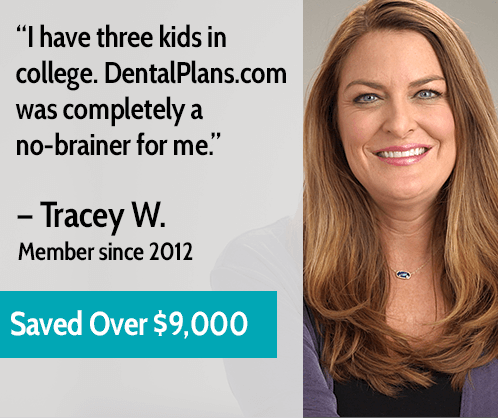“Health is a relationship between you and your body.” – Terri Guillemets
In Longboat Key, Florida, and across the state, the importance of health insurance cannot be overstated. Access to proper healthcare plans ensures better health outcomes and financial security for individuals and families. With the rising costs of healthcare, having the right health coverage provides peace of mind, protecting your health and financial stability. For residents under 65 years old, understanding the differences between marketplace plans and private insurance options is crucial. Whether you’re an individual, part of a family, a small business owner, a self-employed professional, a skilled worker, or an independent contractor, selecting the most suitable health insurance is a smart choice to secure your future.
Finding the right health insurance plan can often be overwhelming. That’s where a market research consultation with a licensed health insurance expert becomes invaluable. These professionals can tailor your coverage needs, ensuring you get the best deal while preventing costly mistakes. Don’t hesitate to fill out the form below for a personalized consultation!

Understanding Health Insurance Premiums
What are Premiums?
Premiums are the monthly payments required to maintain your health insurance coverage. In Longboat Key, the average health insurance premium can vary widely based on factors such as age, location, and type of plan. For those under 65, private insurance might offer higher premium rates compared to marketplace plans, yet they often provide more tailored services. It’s essential to compare these costs in relation to the coverage provided, as higher premiums do not always equate to better care.
Factors Influencing Premium Costs
The cost of premiums can be influenced by various factors, including your demographic, health status, and the overall risk pool of the insurance company. For instance, individuals with pre-existing conditions may see elevated premium rates. Additionally, younger adults may benefit from lower premiums through the marketplace, encouraging preventive care that can lead to long-term savings. It is critical to assess these factors when evaluating your options to ensure that you choose an insurance plan that aligns with your health needs and budget.

Deductibles Explained
What is a Deductible?
A deductible is the amount you pay out-of-pocket before the insurance kicks in to cover your medical expenses. In Longboat Key, deductible amounts vary significantly between marketplace and private plans. Understanding how deductibles affect your overall health spending is vital, especially if you anticipate needing frequent medical care. Lower deductibles may lead to higher premiums, while higher deductibles can keep premiums lower but lead to higher initial out-of-pocket costs before receiving benefits.
Types of Deductibles
Get a hussle-free consultation Out-of-pocket expenses are the costs you incur that are not covered by insurance. These can include copayments, coinsurance, and amounts over the deductible before reaching the out-of-pocket maximum. In Longboat Key, these expenses can significantly affect your financial planning, especially for families, self-employed professionals, or small business owners. Knowing what out-of-pocket expenses to expect can help you budget more effectively for healthcare and mitigate unexpected costs. The out-of-pocket maximum is the most you will pay for covered services in a plan year. Once you reach this limit, your health insurance pays 100% of covered services for the remainder of the year. Different plans come with varying out-of-pocket maximums, so it’s essential to scrutinize these figures when reviewing marketplace and private insurance options. Families and individuals should prioritize plans with a manageable out-of-pocket maximum to provide an additional layer of financial security. Pre-existing conditions refer to health issues that exist before obtaining health insurance. In Florida, many private insurers may impose waiting periods or increased premiums for such conditions, whereas the ACA marketplace protects against this by ensuring individuals cannot be denied coverage. For those under 65, understanding how pre-existing conditions affect both marketplace and private health options is critical to selecting an appropriate plan that provides the necessary coverage and support. Choosing a health insurance plan when you have a pre-existing condition requires careful consideration. Marketplace plans are generally required to cover essential health benefits without charge for pre-existing conditions, potentially saving significant out-of-pocket expenses down the line. However, some private plans may present more personalized services suited for individuals with specific needs, though often at a higher cost. Evaluating the advantages and disadvantages of each is essential to securing the right healthcare coverage for your situation. Marketplace plans, available under the Affordable Care Act (ACA), provide a structured system to compare coverage and costs. They are often subsidized based on income, making these options more accessible for many residents in Longboat Key, especially those with limited financial resources. However, these plans may come with specific restrictions or limited provider networks, which could affect your access to preferred doctors or hospitals. Private insurance may offer a wider array of plans and flexibility in terms of provider networks compared to marketplace offerings. While often preferred for those seeking specialized care or who need higher coverage limits, private insurance also typically comes with higher premiums and potentially more stringent policy terms. Knowing these differences can help you make an informed decision that balances your healthcare needs and financial constraints. Choosing the right health insurance plan is vital for long-term peace of mind and financial security. As highlighted, both private and marketplace options come with unique advantages and challenges. Be proactive and evaluate your personal situation to find the best fit for your needs. If you have more questions or need immediate assistance, please call or text (407) 588-0505. The best option often depends on individual health needs and financial situations. Marketplace plans can be more affordable for lower-income families, while private insurance may offer more comprehensive networks for those who can afford higher premiums. Marketplace premiums are often lower due to federal subsidies, especially for income-eligible individuals. Private insurance can have higher premiums but may offer broader or more customized coverage. Marketplace plans cannot deny coverage based on pre-existing conditions. However, private insurers may impose waiting periods or charge higher premiums for such conditions. No, out-of-pocket maximums vary widely across both marketplace and private plans, and it’s important to choose a plan that aligns with your healthcare needs and budget. Yes, small business owners can utilize the Small Business Health Options Program (SHOP) through the ACA marketplace to find affordable health insurance for their employees.
Out-of-Pocket Expenses and Maximums
Understanding Out-of-Pocket Costs
What is an Out-of-Pocket Maximum?

Pre-Existing Conditions
Impact of Pre-Existing Conditions on Health Insurance
Choosing the Right Coverage with Pre-Existing Conditions

Marketplace vs. Private Insurance
Benefits and Drawbacks of Marketplace Plans
Pros and Cons of Private Insurance
Frequently Asked Questions
1. What is the best health insurance option for residents under 65 in Longboat Key?
2. How do premiums differ between marketplace and private insurance?
3. What happens if I have a pre-existing condition?
4. Are out-of-pocket maximums the same for all health plans?
5. Can small business owners participate in marketplace plans?







0 Comments